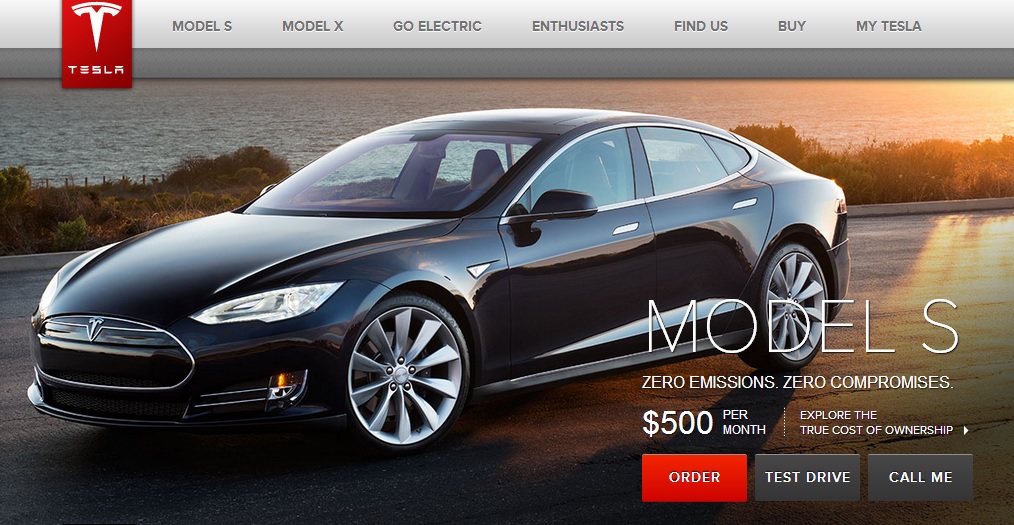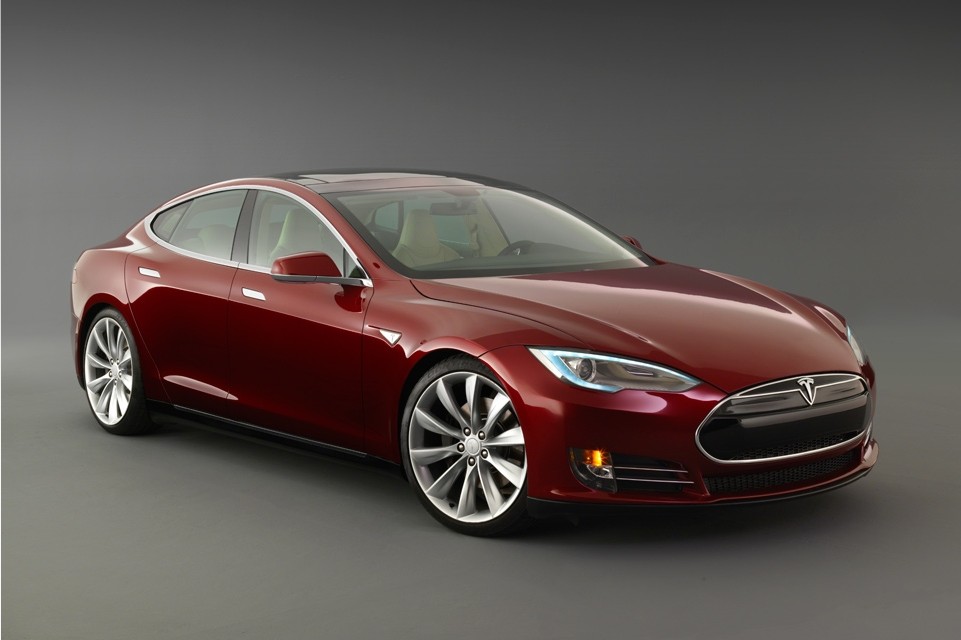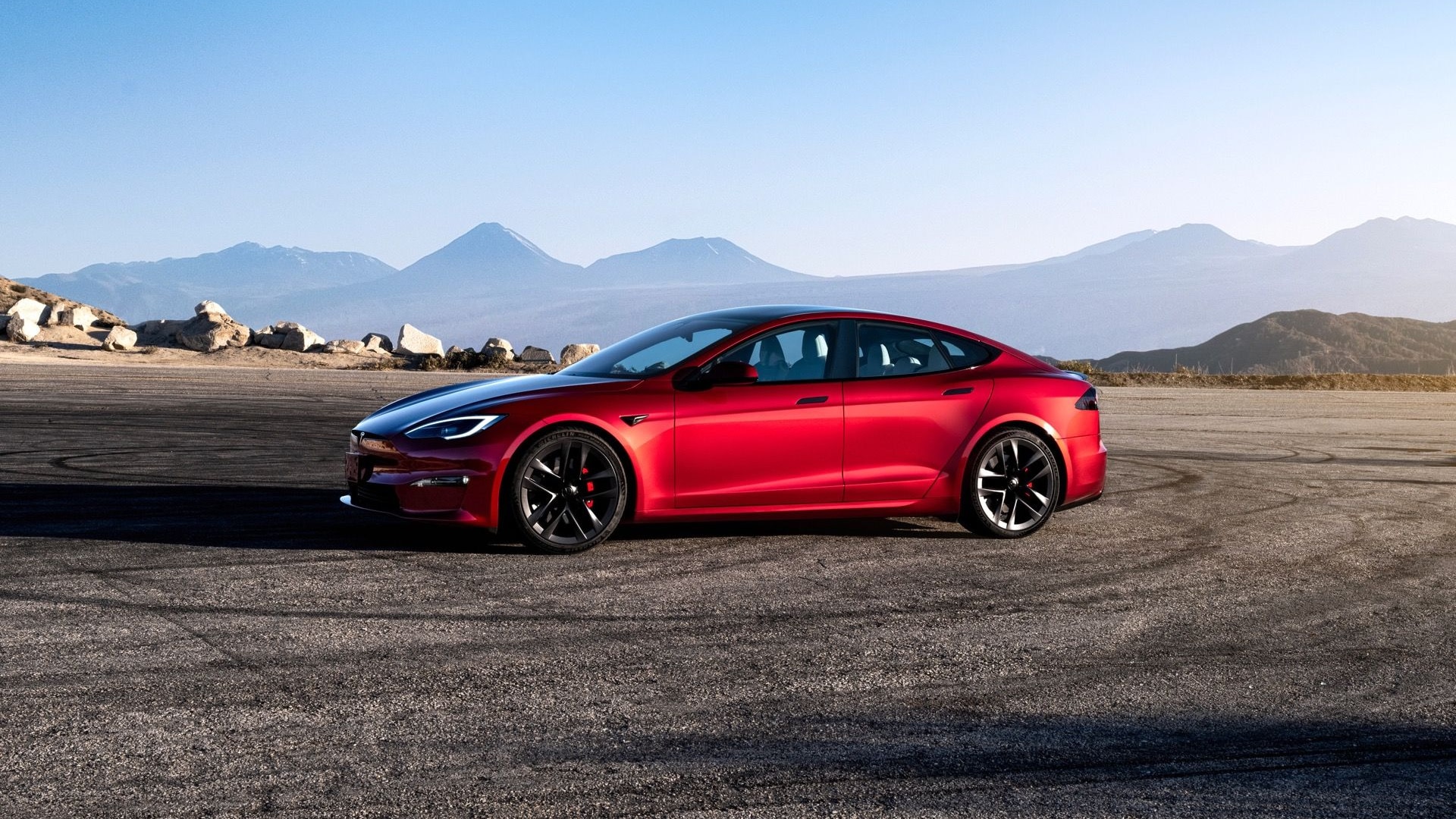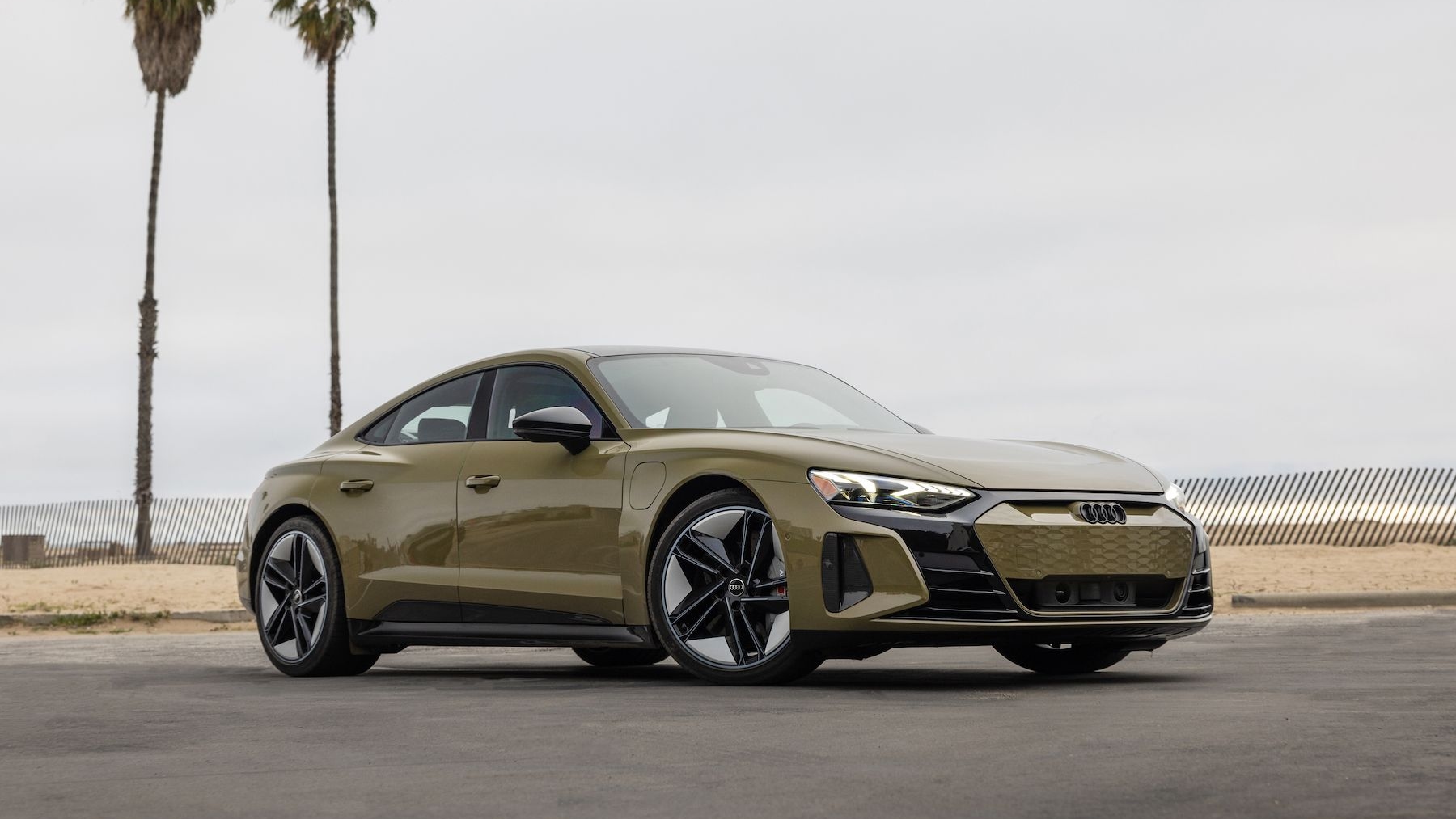
Tesla Motors still advertising $500/mo price despite revision of calculator settings
Announced today, a new financing plan makes it possible for buyers to get their hands on an 85 kWh Tesla Model S for a claimed $543 "effective monthly cost".
It's not quite that simple.
Update: It's even less simple than it was before. Musk has admitted the default settings of the "effective cost" calculator were mistakenly optimistic. The settings have since been revised--to within $1 of our own estimate of the "effective cost" of an 85-kWh Model S. Tesla Motors' website still advertises a cost of $500 per month on its front page, however.
You see, under Tesla's given scenario, you'll actually pay a 10% down payment ($7,990, based on the pre-incentive price of the 85 kWh Model S), and then $1,199 per month.
That's at 2.95% APR for 66 months, and without any taxes and fees.
But this isn't your typical financing purchase; Tesla guarantees the resale value of the car during months 36-39 of your loan term at a fixed 43% of the purchase price.
That 43% buy-back figure is based on the 12-month average resale value of a Mercedes-Benz S550. Not exactly a paragon of resale value, but a competing luxury car, so we'll call it even.
Nevertheless, Tesla insists you'll save money with the purchase of a Model S--to the tune of $656 per month.
How? Tesla says you'll save:
- $53/month through $10,000 in state and federal incentives (if you're a California resident; more in a few other states, less in most)
- $284/month through not paying for gasoline
- $227/month through using the car for your business
- $100/month by not having to spend an hour at the gas station each month (assuming your time is worth $100/hour)
About Musk putting his money where his mouth is
Given that the only direct involvement Tesla has in this financing scheme is the guarantee of the buyback price (the financing itself is done through two independent banks), we assume Musk's "money" is the guarantee itself.
Let's take a closer look at that guarantee.
Assuming a purchase price of $79,900 for a standard 85 kWh Model S, Tesla's guaranteed buyback will be worth $34,395.70.
Problem is, after 36 months of repayment on your 66-month loan, you'll owe about $35,268.46. That means even after Tesla buys the car back from you, you'll owe the bank another $873.
So really, Musk is saying he'll guarantee Tesla will buy the car back from you for less than you've contractually agreed the car is worth at that point, putting $873 of your dollars where his mouth is. What a nice guy.
To be fair, Musk believes the car will be worth more than the 43% figure, and says the company will guarantee the resale value at the higher fair market value if so.
Real cost of ownership
First, lets see what you'll have to lay out to own the Model S for both the 36-month lease/buyback case and for the 66-month outright purchase case.
In either scenario, the monthly payment will be the stated $1,199. Add to that a 10% down payment of $7,990.
Over 36 months, that's a monthly average cost of $1,421. Over 66 months, that works out to $1,320 per month.
Total out-of-pocket cost over 36 months: $51,156; over 66 months: $87,120.
Now, of course, you'll have to maintain the car at a Tesla facility (or an officially approved maintenance center) in order to stay in compliance with the terms of the resale value guarantee. If you don't live near one, you'll be shipping or driving the car both ways to get it maintained. And that's on top of the required $600 per year service contract you'll buy to keep from voiding your warranty.
Here's a handy map of service centers. Even if you're in California, you could be looking at a couple hundred miles in each direction to get your car serviced. The situation is much worse in the middle of the country.

Map of Tesla's current and future service center locations
But getting back to the "savings" proposed in the Tesla calculator
If you don't live in one of the states that offer incentives for EV ownership on top of the Federal $7,500 credit, you won't be saving any money--you'll in fact be adding $17 per month back onto the Model S's cost. Tesla's calculator doesn't even begin to cover the complexity of state-by-state EV incentives and eligibility requirements.
Next, the cost of electricity versus gasoline. Tesla conveniently gives the national average cost of electricity ($0.11 per kWh), though actual cost varies widely by region and by season--even by time of day. But instead of national averages for premium gas prices, it lists an arbitrary average of $5 per gallon over three years.
According to AAA, today's average price for premium gas is $3.958. A year ago, it was $4.197. It could conceivably rise in the future (it has done it before) but the $5 figure as a three-year average is perhaps a bit pessimistic for those not living in California or the Northeast.
Adjusting the average premium gas price back down to $4.25 per gallon reduces the monthly "savings" of financing a Model S by another $50.
But that's at 19 mpg combined average gas mileage. A 2013 BMW 550i averages 20 mpg; a 2013 Mercedes-Benz S550 averages 19 mpg. Perhaps the Tesla estimate is fair enough, especially considering the Model S's relative performance. It's worth noting, however, that the 550i manages 333 miles on a tank of gas at EPA ratings, and the S550 manages 407 miles--and both can be refueled just about anywhere, in minutes.

2013 Tesla Model S
The third item on the monthly Model S savings list is $227 per month in tax deductions for using the car for your business. We're talking about sales to private buyers here, so we're writing this one off as completely bogus. Add $227 back to the monthly cost of the Model S.
Finally, there's a savings of $100 per month for not spending 15 minutes at the gas station four times per month, valuing your time at $100 per hour. If that's what your time is worth, you're making about $200,000 per year. Why aren't you buying this Model S in cash?
At a more realistic $50 per hour, add $50 back to the monthly payment.
Working these adjustments back into the originally claimed $543 monthly "effective cost" of the Model S, you arrive at the much more realistic (yet still forgiving) figure of $887 per month.
And just to include the 60-kWh car for completeness' sake, that would work out to about $764 per month effective, and $1,051 per month raw. Still nowhere near $500 per month. If you expect to spend time charging your Model S while on the road rather than at home or work, add another $50 per hour you do so.
So what's really going on here?
Even at $887 per month, "effective cost", the Tesla Model S with the 85 kWh battery pack is a pretty impressive deal. Leasing or financing a competitive BMW or Mercedes will cost you about $800-$1,100 per month.
So why does Tesla feel the need to attempt to deceive people with its $543 per month ideal scenario? Perhaps the need arises from the same place that saw the brand hawk a 40-kWh model at a price of $49,900-$52,400 for a couple of years before deciding it would be unprofitable to build.
Tesla's continual insistence (including on its retail website) on listing prices after incentives is its own problem. Green Car Reports has explained why that's a deceptive practice.
As much as we love the Tesla Model S, and trust us, we do--it's a hoot to drive, gorgeous to look at, and surprisingly practical--we just can't help feeling like Tesla is out to pull the wool over our eyes at every opportunity.
And that makes us nervous.
Green Car Reports editor John Voelcker contributed to this report.



